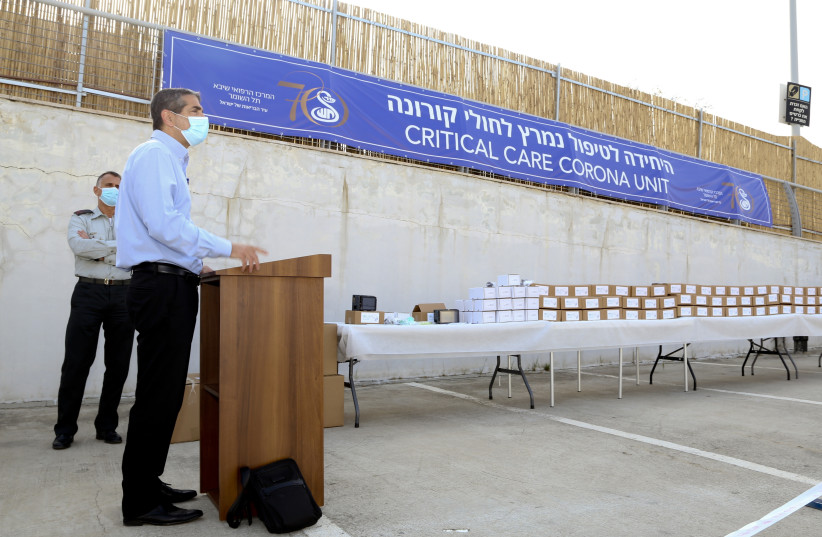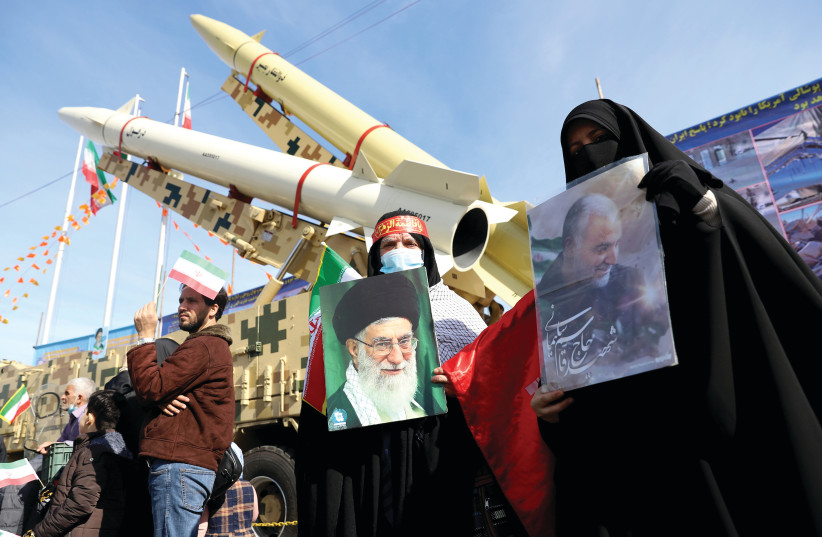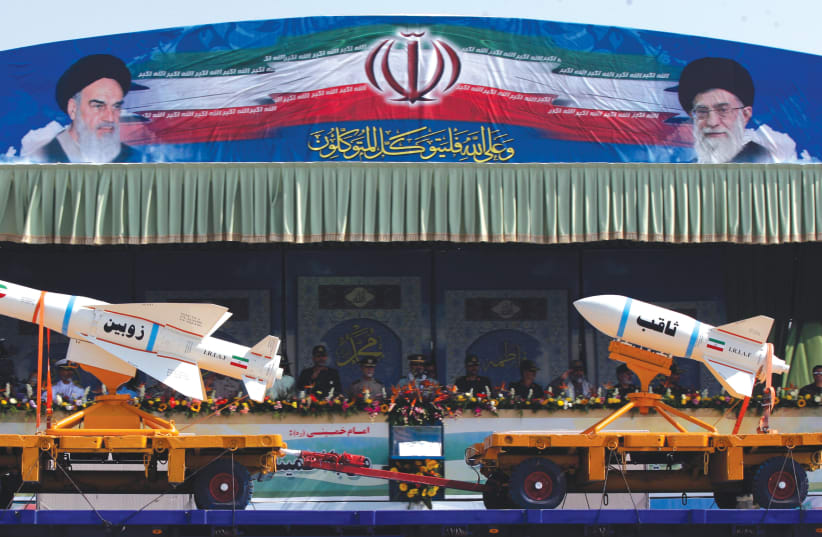Despite enriching uranium at a level not seen before, Iran still has a long way to go before acquiring a nuclear bomb, according to Israel’s Military Intelligence head Maj.-Gen. Tamir Hayman.
According to Hayman, while the levels of enriched uranium are “disturbing,” the Islamic Republic still has a long way to go before acquiring a functioning nuclear bomb that can threaten Israel.
“There is an enriched amount [of uranium] in volumes that we have not seen before and it is disturbing. At the same time, in all other aspects of the Iranian nuclear project, we see no progress,” Hayman said in an interview with Walla News.
“Not in the weapons project, in the financial area, not in any other sector. Therefore the period of time that still remains of two years has not changed. Because even from the moment you have a breakout, there is still a long way to go before a bomb,” he said.
“To the best of our knowledge, the directive has not changed and they are not heading toward a breakout. They are not heading toward a bomb right now: It may be in the distant future.”
The Iranians face three choices, he said: a return to the previous 2015 nuclear deal, break out and go for “unprecedented defiance” including in weapons and continued enrichment or go for an improved agreement where they will achieve far more than they have in the past. Tehran will likely try to exhaust long negotiations with the West while continuing to enrich.
Hayman said that while the “right thing to do” is to act on the side of diplomacy vis-a-vis Iran and its nuclear program, there must be a practical, reliable military option along with the economic and diplomatic tools.
“Let’s just agree with the fact that the right thing to do is to take Iran in the direction we want on the side of diplomacy: an attempt at a better agreement,” he said.


Iran has always denied seeking nuclear weapons but it is believed that it is continuing to develop the capabilities to produce such an arsenal, as well as ballistic missiles capable of carrying nuclear warheads.
In turn, Israel’s military has asked for a major budget increase so that it can strengthen its attack capabilities should it need to attack Iran’s nuclear program.
ISRAEL HAS also warned repeatedly about Iran’s aspirations of regional hegemony and has carried out hundreds of airstrikes as part of its “war-between-wars” campaign to prevent the transfer of advanced weapons to Hezbollah in Lebanon and the entrenchment of its forces in Syria where they could easily act against the Jewish state.
According to Hayman, even with Tehran deploying advanced anti-aircraft missiles, surface-to-air missiles and more, they continue to have a hard time confronting attacks by the Israel Air Force.
The killing of Qassem Soleimani, the former commander of Iran’s Islamic Revolutionary Guard Corps’ Quds Force, was “one of the most significant and important events in my time,” he said, adding that his assassination made a significant contribution to Israel’s national security.
He had been in charge of Iran’s regional aspirations and had been busy establishing a land bridge from Tehran to the Mediterranean as well as Iranian influence in Yemen when he was killed in an American drone strike at Baghdad’s airport in January 2020 along with Abu Mahdi al-Muhandis, deputy commander of Iraq’s paramilitary Popular Mobilization Forces.
Explaining that there are not many people like Soleimani, he said that the man had a strategic vision and operational capacity where he could get things done in Syria in a short period of time.
“He was also the designer of Syria – that’s the bigger story. There are not many people like him” he said. Those who remain, including his replacement Esmail Qaani, are “brilliant people who have high administrative capacity but they cannot handle the decision-making processes. They have no authority.”


Soleimani was the man who designed, approved and also acted against Israel, Hayman said.
“He was a dangerous man” and now that he is dead, his vision “is hopeless at the moment. Nobody is interested in it. Not the Russians, and not the Syrian regime.” There is also a “consistent and sustained decline of Iranians in Syria,” he said, adding that while Syrian militias remain, Tehran continues to withdraw its people from the country.
But as Iran removes its people from Syria, Hezbollah remains entrenched there ready to act against Israel.
The Lebanese Shi’ite terror army, he said, “is a tool that can be used once. Like a match.”
Hezbollah is a “sophisticated and aggressive military tool” that if activated by Iran will bring about two things: significant destruction towards its assets and the destruction of the Lebanese state.
If and when Hezbollah will be fully deployed against Israel, the scale of destruction of Lebanon will be difficult to compare to,” Hayman said, explaining that the use of Hezbollah “is a bit like the nuclear dilemma: When do you use doomsday weapons?”
